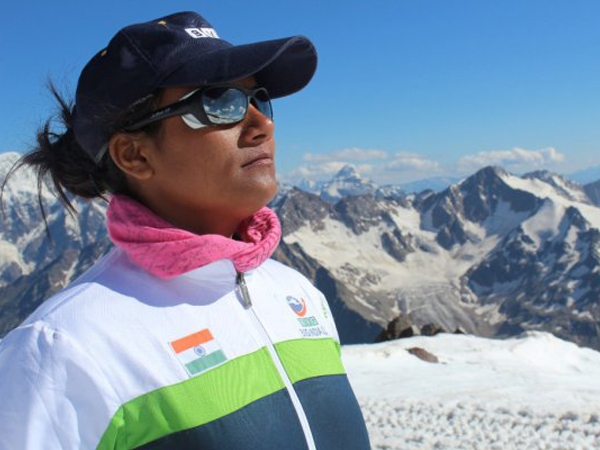An unassuming, soft and humble voice greets me at the other end of the phone. It is Saturday morning and Aruna Bahuguna is busy at work. She is the first woman to head the National Police Academy (NPA), the country’s prestigious and premier training institute for IPS officers at Hyderabad. Also known as the Sardar Vallabhbhai Patel National Police Academy (SVPNPA), Aruna is the first woman director in its 65-year history. This IPS officer of the 1979 batch was also the first woman SDG of the CRPF. She has been a trailblazer from the first day of her training. ” I am just the 12th woman IPS officer in the country. There were eleven before me”, she says ever so humbly.
Was it challenging to be the only woman in a batch of 54 male officers? “I generated a lot of curiosity than resistance. They were not used to having a woman amidst them. Our training spread across Missouri, Nagpur and Hyderabad culminated with practical training in Andhra Pradesh. Our batch was small in number and during the training period, we all grew close to one another. I did not play the feminine card too. We all were equals and they treated me as one.”
The training regime, at the NPA, tests each officer’s mental and physical fitness. How did she prepare for the challenges of outdoor exercises and training? “I was expected to perform all the exercises, just like the rest of my batch. I worked out after every training session, and studied at night. Today, the training requirements are tailored for women and their special challenges. I had no such luxury,” she shares.
Speaking of her early years, she says, “My father was in service in the old State of Hyderabad. After the reorganisation, he received a posting in Maharashtra, and my sister and I continued to live with my grandmother. She taught us to be self reliant and independent early on. We did all our chores and we were responsible for our actions. We visited our father on vacations, and these road trips opened my mind to accept change, appreciate diversity and broadened my perspective.”
Aruna’s grandmother was a pioneer in her own field. A scholarly person, who had studied at Oxford, she was the first lecturer at Maharani College of Mysore. She moved to Hyderabad when Rabindranath Tagore spoke highly of her to the then Nizam of Hyderabad. “I grew up in a very sheltered atmosphere. I went to an all-girls’school and college. With little social outings, absence of TV and limited radio, I enriched my life reading books, writing and engaging in discussions with my grandmother,” she fondly recalls. “I also played the piano, as I believe every one needs art in their life to truly appreciate the beauty of the world we live in.”
How did this sheltered young woman embrace the realities of grass-root policing? “Practical training changed me and made me stronger. It was a revelation to the realities of true police work. I grew with each experience – be it horseback riding, night beat duty, working in crime-infested areas or challenging neighborhoods.”
Aruna was first posted as the Assistant Superintendent of Police, Madanapalle in Chittoor district, bordering Karnataka and Tamil Nadu. A region infamous for cross-border crimes, dacoits, robberies, prostitution and gambling, Aruna was able to end highway dacoity completely, with regular patrolling and consistent investigations.
Sharing memories of her first case, she says “It was a murder case where a brother killed his sibling. The law then stated that when a serious offence is committed, the investigating officer has to stay/live in the place of crime until a significant lead was found. Unfortunately the crime area was deep in the jungle and closest dwelling for me was on the steps of a temple in a nearby village.”
As a woman in a uniform, Aruna was always followed by an inquisitive, in her travels. “I found that people would walk up to me with less inhibitions and ask a lot of questions,” she smiles.
Aruna has held many posts in her illustrious career. SDG – CRPF, Joint Commissioner of Law and Order – Hyderabad, Superintendent of Police – Women’s Protection Cell, Additional DG – AP Special Police, Heading Fire Services and Chairperson of AP Police Housing. She is also a talented pianist, was a play critique for The Hindu, travelogue writer, and a history and trivia enthusiast.
How does she balance the demands of her professional life, her family responsibilities and her passions? “The hard part is the guilt that a working mother always carries on her shoulder. It is physically tiring to balance it all. You have to have a lot of love inside you. My family has always been my source of support and strength. I believe one should also have a passion beyond work to relieve the stress,” she says candidly.
Aruna has conquered many personal challenges, the most difficult being the tragic loss of her first husband. Having pronounced as clinically dead, she recovered to complete health and pursued her work with greater dedication and love. “Tragedies in life make you stronger and a better person,” she says sounding emotional. Her second marriage in her fifties was viewed by many as a sign of empowerment for women who struggle to make those choices.
“I do not have any sympathy for men who abuse women” she states firmly. “Economic dependence is the primary reason why women are unable to walk out of abusive relationships. Educating the girl child must become a priority in our society. When you educate a woman, you educate the entire family. You empower her to make choices in life which are otherwise closed to her. It is important to educate every woman, young girls and even children about the laws that protect them, their mother, daughters and siblings.”
Does she notice a rise in the number of women wanting to join the armed forces, police and Intelligence groups? She shares with an emphatic yes, “I see a great rise in the number of applicants we have from all the states, wanting to join law enforcement, at different levels.”
She speaks about ‘Women in Law Enforcement’ – a conference held every two years at the NPA and is proud to notice the steady rise of women in law enforcement. “I want women to get more active in mainstream policing. They should not be restricted to administrative work. I actually find more women demanding to be in the frontline than in the backend,” she shares with a sense of pride.
Does she look forward to her retirement in 2017? “Retirement is just another phase. I will surely miss my active work life. I am too busy now to even think about it,” she smiles.
Duty calls and Aruna signs off with a heartfelt message. “Women always prioritise themselves, at the last. We need to be our first priority. It is important for us to nurture a sense of self worth and satisfaction, from our own achievements, than seek validation from outside. Women have a unique gift of tough love. We can be compassionate, sensitive, loving and patient and yet display great strength in trying situations. This gift is why we need more women in law enforcement.”
More on >> Balancing Act



